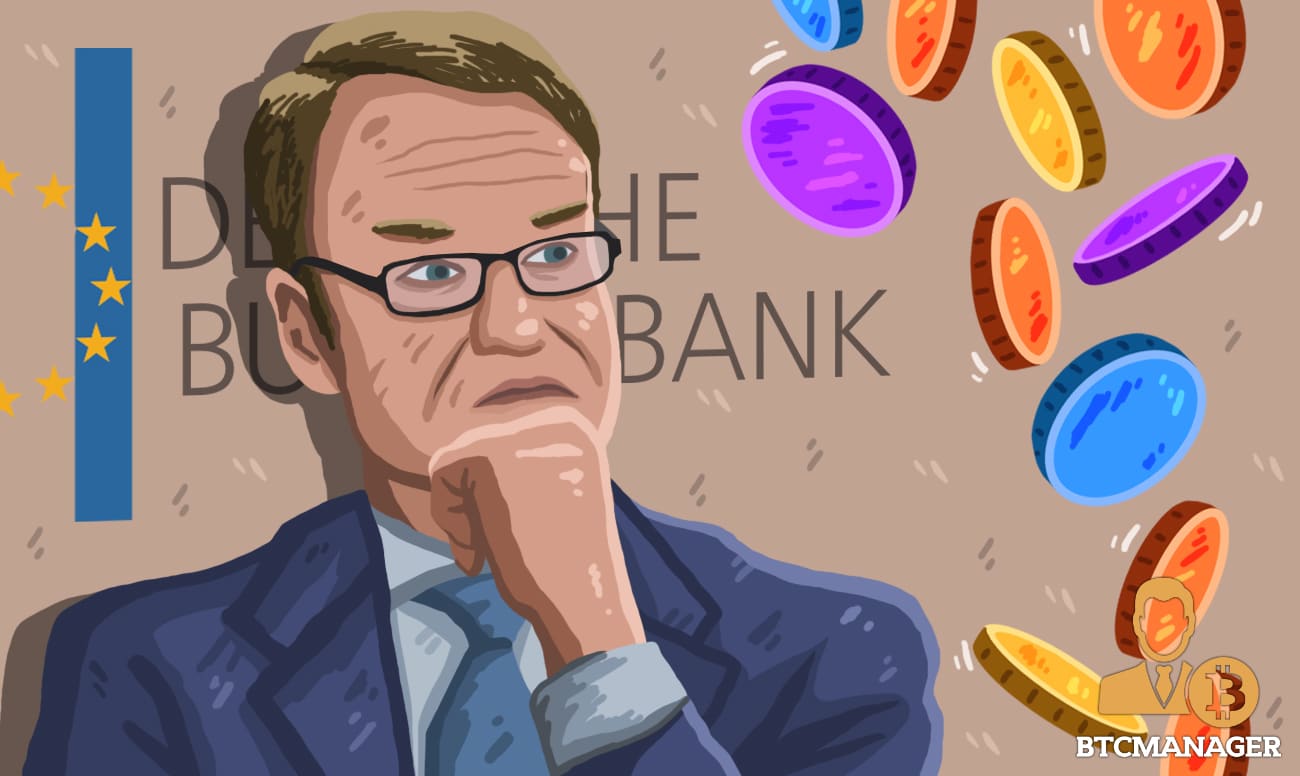German Central Bank Presidents Warns of Digital Currency Blaze

Jens Weidmann, President of Bundesbank, believes mainstream adoption of digital currencies will lead to a systematic destabilization of the financial markets and banking system, May 30, 2019.
More Doomsday Predictions
Central banks around the world are exploring the potential of electronic cash in response to a growing demand to digitize the economy and limit the use of cash. As an example, Swedish Riksbank, among a handful of others, is piloting this exploration with its e-krona scheme to reduce the country’s dependence on physical cash.
Weidmann, a respected figure on the European Central Banks’s Governing Council, has issued a warning to central banks across the globe to understand the dangers digital currency can spur.
His opinion is that digital money makes it easy for people to access their funds and can lead to a faster collapse of financial institutions in times of crises. He notes even in good times that it would force banks to change their business models fundamentally.
Experts have sounded alarms on digital money in low-interest environments for a long time. Savers and depositors do not have much incentive to keep money with these institutions. A digital economy would induce an environment with volatility for the demand of funds, leading to an adverse impact of central bank balance sheets.
Unfounded Claims or Legitimate Argument?
It appears as though Weidmann is criticizing a new piece of technology because it makes funds more accessible and is far more efficient than the prevailing system.
His added point that it will spell the end of the current era of banking and banks will have to re-brand themselves with different business models reflects the common notion central bankers harbor toward digital currency.
Throughout the evolution of humankind, innovation and progress have been an intrinsic factor leading our species to evolve from babbling monkeys to intellectual machines.
Some groups opposed cars and wanted to stay with horses, groups who though plastic cards would fail as a means of accessing money, and groups who thought the concept of the Internet would fail. Once again, legacy system beneficiaries are clinging to their current system, claiming it is the only way things can work.
Bitcoin was created to circumvent the financial cartel and help people bank for themselves. While naysayers’ claims do hold some legitimacy from a macroeconomic perspective, innovation and progress always triumph.














